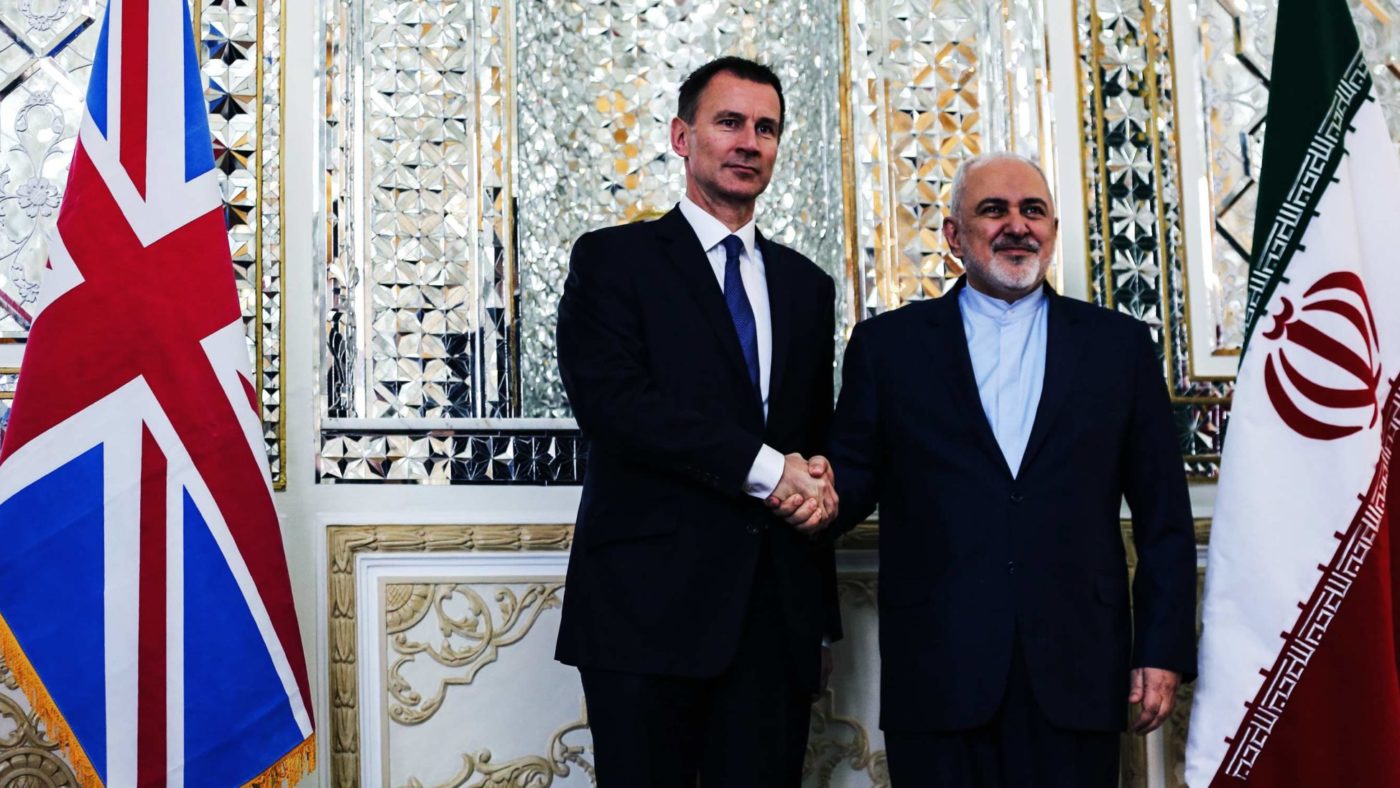International isolation, internal instability and a faltering economy have led Iran’s government to revive its policy of detaining dual nationals such as Nazanin Zaghari-Ratcliffe in an attempt to exert diplomatic leverage over the West. That policy appears to have proved successful, with Jeremy Hunt visiting Iran this week, apparently with the aim of securing her release.
The visit has afforded the Iranian state an opportunity to placate its internal critics, pressure the UK into remaining in the Joint Comprehensive Plan of Action (JCPOA) nuclear deal and distract from its internal separatist movements and foreign policy.
It is surprising to think that it was only three years ago that Iran appeared to have secured its place in the international community. The signing of the JCPOA had opened up Iranian markets to the world and hundreds of millions of dollars in frozen assets had been released. Iran’s expansionist foreign policy had been ostensibly marginalised and talk of human rights abuses had all but been forgotten. As an added bonus, Iran had managed to drive a wedge between geo-political rivals and America. Things appear very different now.
Donald Trump’s decision to withdraw from the JCPOA has transformed Iran back to a pariah state. This has been accompanied by an ever more intense scrutiny of its foreign policy and human rights abuses. Although many European companies have continued to do business with Tehran, with the final tranche of sanctions being implemented in early November, numerous planned investments have been cancelled. Brian Hook, the US special representative for Iran, spoke with justified confidence when he said that almost no European firms were willing to risk US sanctions. As a result, Iran’s economic outlook appears bleak.
Since the US withdrawal from the JCPOA, Iran has been rocked by numerous waves of social protests calling for an end to theocratic rule. The protests are the largest Iran has faced since the 2009 Green Movement. Many of the protests appear spontaneous and have focused around economic hardships and lack of opportunity. Protestors allegedly chanted “Death to the Mullahs” and “Death to Palestine” – a reference to the government neglecting its own citizens while spending money on an expansionist foreign policy in the Middle East.
The Government also fears the growth of internal separatist movements. September saw a deadly attack when gunmen killed 25 at a military parade. The Ahvaz National Resistance, which advocates independence in Iranian Khuzestan, ostensibly claimed responsibility. An Iranian attempt to assassinate members of the group in Denmark has highlighted the regime’s lack of control. There are also growing problems with its large Kurdish minority in North Western Iran who, after years of state-sponsored discrimination, have begun to take inspiration from the 2017 independence referendum held by their fellow Kurds across the border in Iraq.
It is in this context of international isolation, internal instability and poor economic forecasts that the Iranians have employed Zaghari-Ratcliffe as a tool of diplomatic leverage. Zaghari-Ratcliffe was arrested in 2016 on charges of spying and sentenced to five years in prison. She has since suffered a panic attack after an extension to her three day release in order to see her family was cancelled.
Jeremy Hunt’s visit is the first by a European foreign minister since the US withdrew from the JCPOA. If the regime was indeed using Zaghari-Ratcliffe as a tool of diplomacy, then Hunt’s visit fell neatly into their trap. Indeed, it is highly unlikely that a state visit would have occurred without the detention of Zaghari-Ratcliffe.
Nonetheless, the visit represents more than just Iranian hardliners attempts to stop Iran’s engagement with the West. Hunt has afforded the Iranian government exactly what they want. First of all a photo opportunity to impress the Iranian public. Second, a chance to expand dialogue to other areas which, according to the Foreign Office, included “the future of the nuclear deal [and] Iran’s role in the conflicts in Syria and Yemen”.
Iran is likely hoping to exert pressure upon the UK to remain part of the JCPOA. Were Britain to pull out it would all but finish off the accord and with it the economic lifeline which holds the regime in place. Indeed, it is likely Iran feared the UK was being persuaded to withdraw from the accord under pressure from the Trump Administration, with whom it hopes to strike a trade deal after leaving the European Union.
Earlier this week Theresa May was berated in a foul-tempered phone call with Donald Trump over her perceived failures to exert pressure upon Iran. The Iranians are clearly a sensitive subject for Trump, judging by his angry tweet at President Rouhani earlier this year, which read: “NEVER, EVER ,THREATEN THE UNITED STATES AGAIN OR YOU WILL SUFFER CONSEQUENCES THE LIKES OF WHICH FEW THROUGHOUT HISTORY HAVE EVER SUFFERED BEFORE.”
The tactic of arresting dual national citizens has been a tactic since the Ayatollahs took over in 1979. A 2017 Reuters investigation found that the Revolutionary Guard had arrested at least 30 dual nationals in the space of two years.
The response from the West has always been a mixture of cash payments or arms sales to entice their release. The Obama administration was forced to fork out at least $400 million in return for the release of several American hostages.
Bluntly put, as long as there is an incentive for the Iranian regime to arbitrarily detain dual nationals then these detentions will continue. For Nazanin Zaghari-Ratcliffe and her family, that may yet mean a long wait for her release.


